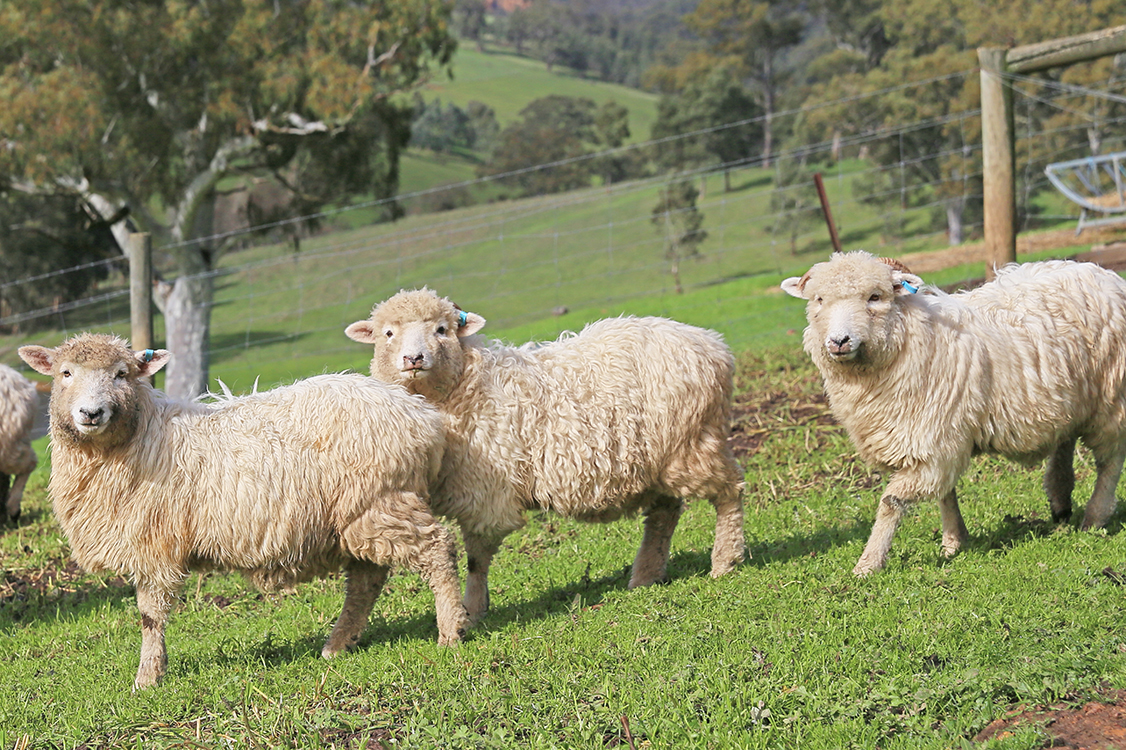
RARE BREEDS TRUST OF AUSTRALIA
powered by TidyHQSheep: Tukidale
Sheep: Tukidale
Country of Origin 
New Zealand
Australian Status

International Status
Uses
 Carpet Wool and Meat.
Carpet Wool and Meat.
Breed traits
Like other wool breeds, they're best run where natural feed is stable, to save a break in the wool. The T gene also means this breed is horned, both males and females. They have the robust build of a Romney Marsh and the distinctive long thick wool, which is very white. The wool is harsh to handle and very strong, making it ideal for carpet.
Tukidales are an easy care breed with high fertility. The wool usually measures 35 but can go to 45 microns. The length of the staple is 15cm (6 inches). The well-built carcass is acceptable for meat too, making them dual purpose.
History
The Tukidale came into existence in New Zealand in 1966. A breeder of Romney Marsh sheep, Mr. Malcolm Coop, bred a ram with the dominant T gene for medullated wool (hairy); thus began the breed as the ram passed his dominance on. The coarse fibre is perfectly suited to carpet wool, insulation and upholstery. The wool also grows exceptionally fast – the sheep are shorn twice a year.
The NZ property name was Tuki Tuki, and as T is the gene for this hair, the breed name came into being.
Sadly, in June, 2018, New Zealand stated that the Tukidale now appears to be extinct in its home country.
History in Australia
They were first brought to Australia in 1975 and crossed with Romney Marsh to increase numbers. Starting in NSW, flocks were established in other states.
A Society was formed in Australia in 1978. Their newsletters are held by the National Library of Australia, Canberra, and may be viewed in the library by request.
There may now be only 2 flocks in Australian. One flock held in South Australia and one in the Riverina area.
Australian Population
2017: Ewes 105; Rams 20
2022: No numbers
2025: Ewes 118; Flocks 2
Breed Organisation
The Tukidale Association of Australia, Secretary: Vee Pols, Chandlers Hill, South Australia, Email: rv@pols.id.au
Photo credit
Tukidale ewes from Vee and Rene Pols, Chandlers Hill, South Australia.
